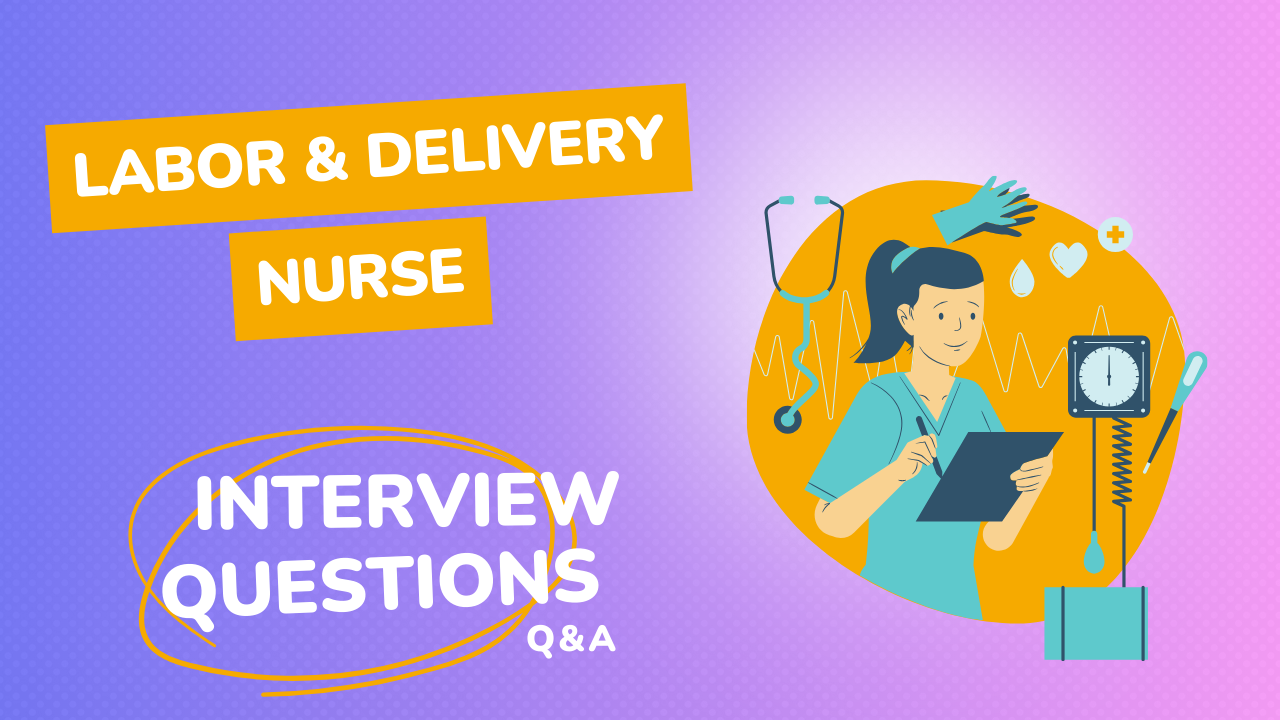Blog Detail

How to Nail Dietician Interview in UK – Q&A with Examples
Jul 27, 2024
How to Nail Dietician Interview in UK – Q&A with Examples
Introduction
In the United Kingdom, the field of dietetics is a dynamic and essential component of healthcare. Dietitians play a crucial role in promoting health, preventing diseases, and managing various medical conditions through personalized nutrition plans. Securing a position as a dietitian requires not only a solid academic background but also effective interview skills to demonstrate your expertise and suitability for the role.
This comprehensive guide aims to provide invaluable insights and tips for navigating the dietitian interview process in the UK.
Understanding the Role of a Dietitian
Before delving into the interview process, it is imperative to have a clear understanding of the role of a dietitian. Dietitians are healthcare professionals who are trained to assess, diagnose, and treat dietary and nutritional problems at an individual and wider public health level. They work across a range of settings including hospitals, clinics, community health centers, research institutions, and public health organizations.
The responsibilities of a dietitian may include:
- Conducting nutritional assessments and developing personalized dietary plans for patients with various medical conditions such as diabetes, obesity, cardiovascular diseases, and eating disorders.
- Providing dietary advice and counselling to individuals and groups to promote healthy eating habits and prevent nutrition-related diseases.
- Collaborating with other healthcare professionals including doctors, nurses, and therapists to ensure integrated patient care.
- Conducting research to advance the understanding of nutrition science and contribute to evidence-based practice.
- Participating in public health initiatives aimed at addressing nutritional deficiencies, food insecurity, and promoting healthy lifestyles within communities.
Preparing for the Dietitian Interview
- Research the Organization: Familiarize yourself with the organization where you are applying for the dietitian position. Understand its mission, values, services, and target population. Being knowledgeable about the organization demonstrates your genuine interest and commitment.
- Review the Job Description: Pay close attention to the job description and requirements outlined by the employer. Identify the key skills, qualifications, and experiences they are seeking in a candidate. Tailor your responses during the interview to highlight how your background aligns with the job requirements.
- Understand Current Trends and Issues: Stay updated with the latest trends, research findings, and issues in the field of dietetics. This includes advancements in nutrition science, dietary guidelines, public health initiatives, and emerging nutrition-related challenges such as obesity, food insecurity, and sustainable food systems.
- Practice Common Interview Questions: Prepare responses to common interview questions that are frequently asked during dietitian interviews. These may include questions about your educational background, clinical experience, problem-solving skills, communication abilities, and ethical considerations in dietetic practice.
- Showcase Your Clinical Skills: Be prepared to discuss your clinical experiences, including any internships, placements, or previous employment in healthcare settings. Highlight your ability to conduct nutritional assessments, develop comprehensive care plans, communicate effectively with patients and colleagues, and adapt to diverse patient populations.
The Dietitian Interview Process
The dietitian interview process typically consists of multiple stages, which may include phone screenings, panel interviews, case presentations, and practical assessments. Each stage serves as an opportunity for the employer to evaluate your qualifications, competencies, and suitability for the role. Here's a breakdown of the typical components of the dietitian interview process:
- Phone Screening: The initial phone screening is often conducted by a human resources representative or hiring manager. This brief conversation aims to assess your basic qualifications, availability, salary expectations, and interest in the position. Be prepared to discuss your educational background, relevant experiences, and reasons for pursuing a career in dietetics.
- Panel Interview: If you successfully pass the phone screening, you may be invited to participate in a panel interview with members of the hiring committee or interdisciplinary team. Panel interviews allow multiple stakeholders to evaluate your candidacy and ask questions related to your clinical knowledge, professional demeanor, teamwork skills, and problem-solving abilities. Make eye contact, engage with each panel member, and demonstrate your enthusiasm for the role.
- Case Presentations: Some dietitian interviews may include case presentations where you are given hypothetical patient scenarios or clinical vignettes to analyze and discuss. Use evidence-based guidelines, critical thinking skills, and clinical reasoning to develop appropriate dietary recommendations and treatment plans. Be prepared to justify your decisions and consider the biopsychosocial factors that may impact patient outcomes.
- Practical Assessments: In addition to traditional interviews, certain employers may require candidates to complete practical assessments or skills demonstrations. This could involve tasks such as conducting a nutritional assessment, counseling a patient on dietary modifications, or interpreting laboratory values. Practice these skills in advance and demonstrate professionalism, empathy, and cultural competence throughout the assessment.
Key Tips for Success in Dietitian Interviews
- Communicate Effectively: Effective communication is essential for building rapport with patients, collaborating with colleagues, and conveying complex nutrition information in a clear and understandable manner. Practice active listening, ask clarifying questions, and tailor your communication style to meet the needs of diverse individuals and populations.
- Demonstrate Empathy and Cultural Competence: Recognize the cultural, social, and economic factors that influence dietary habits, beliefs, and health behaviors within different communities. Demonstrate empathy, respect cultural diversity, and adapt your counseling approach to consider the unique backgrounds and preferences of your patients.
- Stay Professional and Ethical: Uphold the highest standards of professionalism, integrity, and ethical conduct in your interactions with patients, colleagues, and stakeholders. Adhere to the British Dietetic Association (BDA) Code of Professional Conduct and maintain confidentiality, respect autonomy, and prioritize the well-being of your clients at all times.
- Emphasize Continual Learning and Professional Development: Highlight your commitment to lifelong learning, professional development, and staying abreast of current research and best practices in the field of dietetics. Discuss any continuing education courses, certifications, or professional memberships that demonstrate your dedication to advancing your knowledge and skills as a dietitian.
Crafting a Dietitian Resume: A Path to Interview Success
In the competitive landscape of the healthcare industry, a well-crafted dietician resume serves as the cornerstone of your professional identity and paves the way for securing coveted interviews. As a dietitian, your resume not only showcases your academic credentials and clinical experiences but also highlights your passion for nutrition, patient care, and promoting health and wellness. In this guide, we'll explore key strategies for crafting a compelling dietitian resume that effectively captures the attention of hiring managers and sets the stage for interview success.
- Structure and Format:
- Begin with a clear and concise header containing your name, contact information, and professional credentials (e.g., Registered Dietitian Nutritionist - RDN).
- Follow a reverse chronological format, listing your most recent education, clinical experiences, and relevant certifications first.
- Use clear and legible fonts, such as Arial or Calibri, and maintain consistent formatting throughout the document.
- Aim for a one-page dietician resume whenever possible, focusing on quality over quantity to highlight your most relevant qualifications and achievements.
- Professional Summary or Objective Statement:
- Consider including a brief professional summary or objective statement at the beginning of your resume.
- Highlight your areas of expertise, clinical interests, and career objectives in a concise and compelling manner.
- Tailor your summary to align with the specific job requirements and emphasize how your skills and experiences make you an ideal candidate for the position.
- Education and Credentials:
- Clearly list your educational background, including degrees, certifications, and licensures relevant to dietetics and nutrition.
- Highlight any academic honors, scholarships, or awards received during your educational journey.
- Specify your completion of accredited dietetic programs and registration status with professional bodies such as the British Dietetic Association (BDA) or the Health and Care Professions Council (HCPC).
- Clinical Experiences and Internships:
- Detail your clinical experiences, internships, and practicum rotations in various healthcare settings.
- Provide specific examples of your responsibilities, achievements, and contributions during each placement.
- Highlight your ability to conduct nutritional assessments, develop individualized care plans, and communicate effectively with patients and multidisciplinary teams.
- Skills and Competencies:
- Create a dedicated section to showcase your key skills and competencies as a dietitian.
- Include both technical skills (e.g., nutritional analysis software, medical charting systems) and soft skills (e.g., communication, empathy, cultural competence).
- Demonstrate proficiency in evidence-based practice, clinical decision-making, and patient-centered care approaches.
- Professional Affiliations and Continuing Education:
- Highlight your membership in professional organizations such as the British Dietetic Association (BDA), Academy of Nutrition and Dietetics, or other relevant associations.
- Mention any additional certifications, continuing education courses, or workshops attended to enhance your professional development and stay abreast of emerging trends in dietetics.
- References:
- Optionally, include a section for references or indicate that references are available upon request.
- Select individuals who can speak to your clinical abilities, professionalism, and interpersonal skills, such as preceptors, supervisors, or colleagues from previous clinical experiences.
- Proofreading and Editing:
- Thoroughly proofread your resume to ensure accuracy, clarity, and consistency in grammar, punctuation, and formatting.
- Consider seeking feedback from mentors, peers, or career advisors to identify areas for improvement and enhance the overall quality of your resume.
In summary, crafting a compelling dietitian resume requires careful attention to detail, strategic presentation of your qualifications, and alignment with the expectations of prospective employers. By showcasing your academic achievements, clinical experiences, and passion for nutrition and wellness, you can effectively differentiate yourself as a top candidate and secure valuable opportunities for interviews in the competitive field of dietetics.
20 Common Interview Questions for Dietician and their Answers with Examples
Certainly! Here are 20 common interview questions for dietitians in the UK along with sample answers:
- Can you tell us about your educational background and qualifications in dietetics?
Sample Answer: "I completed my bachelor’s degree in nutrition and Dietetics from [University Name] and subsequently pursued a postgraduate diploma in Dietetics. I am a registered dietitian with the Health and Care Professions Council (HCPC) and a member of the British Dietetic Association (BDA)."
- What motivated you to pursue a career in dietetics?
Sample Answer: "I have always been passionate about the profound impact nutrition can have on health and well-being. I was inspired to pursue a career in dietetics to help individuals make meaningful dietary changes that enhance their quality of life and prevent chronic diseases."
- How do you stay current with developments in the field of dietetics and nutrition?
Sample Answer: "I regularly attend professional conferences, workshops, and seminars to stay abreast of the latest research findings, dietary guidelines, and best practices in dietetics. I also engage in continuing education courses and follow reputable nutrition journals and publications."
- Can you describe your experience working with diverse patient populations?
Sample Answer: "Throughout my clinical rotations and professional experiences, I have worked with diverse patient populations spanning different age groups, cultural backgrounds, and medical conditions. I approach each patient with empathy, respect for cultural diversity, and a commitment to delivering patient-centered care."
- How do you assess patients' nutritional needs and develop individualized care plans?
Sample Answer: "I conduct comprehensive nutritional assessments, including dietary history, anthropometric measurements, biochemical data, and clinical observations. I collaborate with patients to set realistic goals and develop personalized dietary plans that align with their nutritional needs, preferences, and lifestyle."
- Can you discuss a challenging case you encountered and how you approached it?
Sample Answer: "I encountered a patient with multiple comorbidities and complex dietary restrictions. I conducted a thorough assessment, collaborated with the healthcare team, and tailored a flexible meal plan that addressed the patient's medical needs while considering their cultural preferences and socioeconomic factors."
- How do you ensure effective communication and collaboration with other members of the healthcare team?
Sample Answer: "I prioritize open communication, active listening, and mutual respect when collaborating with physicians, nurses, therapists, and other healthcare professionals. I recognize the importance of interdisciplinary teamwork in achieving optimal patient outcomes and strive to contribute positively to the team dynamic."
- How do you approach counselling patients on behaviour change and dietary adherence?
Sample Answer: "I employ motivational interviewing techniques and behavioural change strategies to empower patients to make sustainable lifestyle modifications. I focus on setting realistic goals, providing positive reinforcement, and offering ongoing support to enhance patient motivation and adherence to dietary recommendations."
- What strategies do you use to promote nutrition education and awareness within the community?
Sample Answer: "I actively engage in community outreach programs, health fairs, and educational workshops to raise awareness about the importance of nutrition and healthy eating habits. I collaborate with local organizations, schools, and community centres to deliver culturally relevant nutrition education initiatives."
- How do you stay organized and prioritize tasks in a fast-paced clinical environment?
Sample Answer: "I utilize effective time management strategies, prioritize tasks based on urgency and importance, and maintain clear documentation to ensure continuity of care. I remain flexible and adaptable to unexpected challenges while maintaining a focus on delivering high-quality patient-centred services."
- Can you discuss your experience with nutritional counselling for patients with eating disorders?
Sample Answer: "I have experience providing nutritional counselling and support to patients with eating disorders, including anorexia nervosa, bulimia nervosa, and binge eating disorder. I approach these cases with sensitivity, empathy, and a multidisciplinary team-based approach to address both nutritional and psychological aspects of recovery."
- How do you incorporate evidence-based practice into your clinical decision-making process?
Sample Answer: "I critically evaluate research literature, clinical practice guidelines, and peer-reviewed studies to inform my decision-making process and ensure that my interventions are evidence-based and clinically appropriate. I prioritize patient safety, efficacy, and outcomes when implementing dietary interventions."
- Can you discuss your experience with menu planning and food service management?
Sample Answer: "I have experience developing nutritionally balanced menus for various healthcare settings, including hospitals, long-term care facilities, and schools. I collaborate with food service staff to ensure that menus meet dietary guidelines, accommodate special dietary needs, and promote patient satisfaction."
- How do you address ethical dilemmas or conflicts of interest in your practice?
Sample Answer: "I adhere to professional codes of ethics and uphold the principles of beneficence, non-maleficence, autonomy, and justice in my practice. I engage in ethical decision-making processes, seek consultation when necessary, and prioritize the best interests of my patients while maintaining integrity and transparency."
- How do you assess and address food insecurity among vulnerable populations?
Sample Answer: "I recognize food insecurity as a significant social determinant of health that impacts individuals' access to adequate nutrition. I collaborate with community organizations, food banks, and government agencies to connect patients with resources, such as food assistance programs and nutritional education initiatives."
- Can you discuss your experience with nutritional support for patients undergoing medical treatments or surgeries?
Sample Answer: "I have provided nutritional support and counselling to patients undergoing medical treatments, such as chemotherapy, radiation therapy, and surgical interventions. I collaborate with the healthcare team to address nutritional deficiencies, manage side effects, and optimize patients' nutritional status throughout their treatment journey."
- How do you tailor dietary interventions to meet the needs of patients with chronic diseases, such as diabetes or cardiovascular disorders?
Sample Answer: "I employ a holistic approach to managing chronic diseases by integrating dietary modifications, physical activity recommendations, and lifestyle changes tailored to each patient's unique needs and medical history. I emphasize patient education, self-management skills, and regular monitoring to achieve optimal health outcomes."
- How do you handle patient resistance or non-compliance with dietary recommendations?
Sample Answer: "I approach patient resistance with empathy, understanding, and non-judgmental communication. I explore the underlying reasons for non-compliance, address any barriers or concerns, and collaborate with patients to identify realistic solutions and alternative approaches to support their journey towards improved health."
- Can you discuss your experience with nutrition assessment and support for pediatric patients?
Sample Answer: "I have experience conducting nutritional assessments, growth monitoring, and feeding evaluations for pediatric patients across different age groups, from infants to adolescents. I collaborate with pediatricians, parents, and caregivers to address nutritional concerns, promote healthy growth and development, and foster positive eating behaviours."
- How do you ensure cultural competence and sensitivity when working with diverse patient populations?
Sample Answer: "I recognize the importance of cultural competence in delivering culturally sensitive care and respecting diverse beliefs, traditions, and dietary practices. I strive to build rapport, establish trust, and tailor my communication style and dietary recommendations to meet the cultural and linguistic needs of each patient."
Preparing thoughtful and concise responses to these common interview questions will help you showcase your expertise, professionalism, and passion for dietetics during the interview process. Additionally, be prepared to provide specific examples, anecdotes, and case studies that illustrate your clinical skills, problem-solving abilities, and commitment to patient-centred care. Good luck with your dietitian interviews in the UK!









